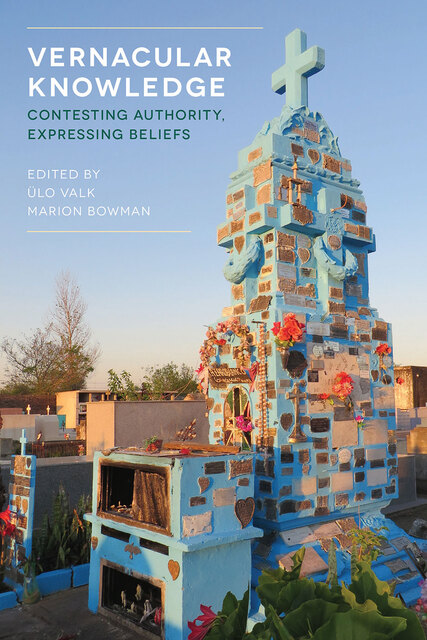Valk & Bowman/Vernacular Knowledge, 7. When a Cosmic Shift Fails

Full description
Folklorists have long recognized and documented New Age folk beliefs. They can be found in everyday talk about meditation and premonitions to stories of spiritual experiences and amateur fortunetelling of all kinds. And, like all folklore in the 21st century, we can easily find these folk beliefs and practices circulating online. In fact, excellent scholarship has now shown how quickly and naturally all common folkloric forms went digital. However, we are just beginning to explore the implications of all this folklore going online. Online communities have empowered us to find other people who share the same interest we do. Today, it is easier share beliefs about spiritual beliefs even as religious expression seems increasingly individualized and idiosyncratic. In these digitally empowered vernacular webs, the authority of shared beliefs can be magnified by the perception that everyone in the online community shares the same beliefs. Online forums dedicated to discussing specific topics offer a good opportunity to observe how powerful vernacular authority can grow in a digitally empowered vernacular web. Here, New Age folk beliefs can be seen to take on the role of vernacular resistance to what is perceived as the unjust dominance by institutions both religious and otherwise, and this form of online folkloric empowerment raises important questions about how we as a society should value the idiosyncratic, anti-institutional, but potentially powerful folk-cultures like that of New Age apocalypticism. Using the computational methods to topically map online New Age forums, I have found the informal discussions revolve around discrete set of diverse but recurring topics. In each of these topics we can see a vernacular resistance to perceived institutional dominance. In discussions of ancient Mayan prophecy, this resistance is obvious in rumours and exchanges of beliefs that specifically assert right knowledge of an this ancient culture that is different from that of the current culture or experts on Mayan history. It is less obvious in discussions of spiritual practices and individual preparation for different kinds of global transformations, but these prepping discourse center on the fundamental belief that the existing institutions both governmental and religious have failed to recognize the fact of an impending spiritual transformation. In each of these as well as many other topics this study is tracking, individuals are using their ability to locate like-minded others and create highly specific webs of vernacular communication to foster a complex and vibrant spiritually infused prepping culture. While this ability to create their own culture is surely a form of empowerment, it also perpetuates a sense in this community of individuals who have right knowledge to which most of us do not have access. Approaching this belief matrix, how can we critically engage this culture? How can we contribute to the larger understanding of folk belief in a digital age?
- typeImage
- created on
- file formatjpg
- file size307 KB
- container titleVernacular Knowledge: Contesting Authority, Expressing Beliefs
- creatorRobert Glenn Howard
- isbn9781800502147 (eBook)
- publisherEquinox Publishing Ltd.
- publisher placeSheffield, United Kingdom
- rightsEquinox Publishing Ltd.
- doi
We use cookies to analyze our traffic. Please decide if you are willing to accept cookies from our website. You can change this setting anytime in Privacy Settings.
